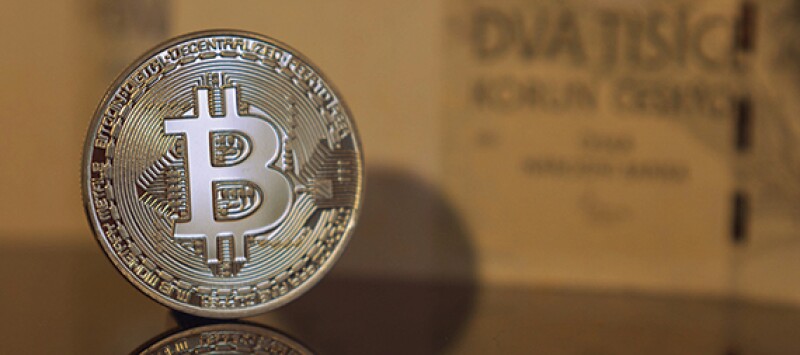
|
Under Malta’s new guidelines, any payment made or received in a cryptocurrency will be treated for income tax purposes like a fiat currency |
Late last year, Malta's Commissioner for Revenue (CfR) published three sets of guidelines concerning the tax treatment of assets in the area of distributed ledger technology (DLT) under the Income Tax Act (Cap. 123), the Duty on Documents and Transfers Act, or DDTA (Cap. 364), and the VAT Act (Cap. 406). These guidelines provide legal certainty to companies whose activities and business concern the transfer and issuing of DLT assets.
Each guideline defines the type of DLT assets (coins, financial tokens and utility tokens) which may be subject to taxation in Malta. The guidelines categorise DLT assets as being:
Coins: Typically, DLT assets that functionally constitute cryptographic equivalents of fiat currency; or
Tokens: These may be financial tokens (similar to financial instruments) or utility tokens (whose utility, value or application is restricted to the acquisition of specific goods or services within a DLT platform); or
Hybrids: Tokens that may have the characteristics of both coins and tokens.
For the purposes of the guidelines, DLT assets specifically exclude electronic money that is representative of fiat currencies.
The guidelines confirm that the tax treatment of any DLT asset will not depend on the qualification that the parties involved have given to such an asset, but on the purpose and the context in which the asset is actually being used. The nature of the activities, the status of the parties involved in the transaction, and the facts and circumstances of a particular case will play a decisive role in the fiscal treatment of the transactions involving the DLT assets.
DLT assets and income tax
The Guidelines on the Income Tax Treatment of Transactions or Arrangements involving DLT assets note that any payment made or received in a cryptocurrency, or any payment made by means of a transfer of a financial or utility token (including payments of remuneration), will be treated for income tax purposes like a payment in any other type of currency. Transactions involving cryptocurrency coins will be treated identically to transactions involving traditional fiat currency for income tax purposes.
Profits derived from the business of exchanging coins, proceeds from the sale of coins held as trading stock, and profits generated on revenue account from the mining of cryptocurrency coins qualify as income and shall be taxed as such. Gains derived from transactions involving coins which qualify as capital gains will fall outside the scope of income tax.
The guidelines confirm that the income tax treatment applicable to the transfer of tokens depends on whether the receipt derived from such a transfer can be deemed to be of an income nature or a capital nature. If the transfer is made in the ordinary course of business of the transferor, the proceeds will be taxed as trading income under the Income Tax Act (Cap. 123).
In this context, the ordinary income tax rules are applicable to determine the nature of the assets, and therefore the nature of the subsequent receipt of proceeds on the transfer of this asset as either trading income or a capital gain. The CfR confirms that the badges of trade tests, as established in jurisprudence, may be used for this purpose.
When a transfer of tokens does not constitute trading income, but income of a capital nature, the tax treatment of such capital gains will depend on the nature of the transferred token. In the case of financial tokens, one will need to assess whether these tokens fall within the definition of "securities" (as contemplated by Article 5 of the Income Tax Act, Cap. 123), or otherwise.
If they are characterised as such, the tokens will be governed by the provisions of Article 5 of the Income Tax Act (Cap. 123) and the capital gains will be subject to tax accordingly. Capital gains derived from the transfer of financial tokens, which do not meet the definition of securities or utility tokens, will not be within the scope of taxation.
Documents and transfers
The Guidelines for the Purpose of the Duty on Documents and Transfers Act effectively state that the duty treatment (in relation to any transaction involving DLT assets) is to be in accordance with current tax provisions, jurisprudence and principles. The CfR emphasises that for the duty treatment of DLT assets, the intrinsic nature and effects of a particular transaction are decisive, regardless of the apparent title or form given.
Where DLT assets can be deemed to have the same characteristics as "marketable securities" as defined in the DDTA, they will be subject to duty in accordance with the provisions of the DDTA, applicable to the transfer of "marketable securities".
The requirement to keep proper records in terms of the DDTA is extended to transactions involving DLT assets, including applicable penalties in case of default.
Value-added tax
The Guidelines for the VAT Treatment of Transactions or Arrangements involving DLT assets provide guidance in the area of VAT implications applicable to transfers involving DLT assets. The place of supply is the first decisive factor in discerning whether a certain transfer of DLT assets is subject to VAT in Malta. When the place of supply is deemed to be outside Malta, the DLT transfer is not subject to Maltese VAT.
The CfR confirms the reasoning set out in the judgment of the European Court of Justice (ECJ) in Skatterverket v. David Hedqvist (C-264/14). Transactions involving cryptocurrencies which serve solely as a means of payment and as an alternative to legal tender are to be treated in the same way as transactions involving traditional legal tenders for VAT purposes, and will accordingly be treated as exempt without credit supplies in terms of item 3(4) of Part Two of the 5th Schedule to the VAT Act (Cap. 406).
Services consisting of the exchange of cryptocurrencies for legal tender or other cryptocurrencies, and those allowing users to hold and operate a cryptocurrency (digital wallet services) where the services concern a transaction of currency for consideration, are generally deemed to be VAT exempt. However, a service which possesses a mere technological character would be subject to VAT.
In the context of mining, the guidelines provide a distinction between mining services for which compensation is received solely in the form of the mined cryptocurrencies, and the provision of mining services for a specific payment received for this mining service.
Where a rendered mining service is compensated solely through the payment of newly mined coins, no direct link between the compensation received and the service rendered can be established, causing the mining service to fall outside the scope of the VAT Act.
However, when a payment or consideration other than the mined cryptocurrencies is received for the mining activities, a direct link between the supply of the service and the consideration received can be established, which would render the mining service a chargeable supply for VAT purposes.
The provision of a tracing/exchange service through an exchange platform in return for a payment constitutes the supply of a service for consideration. Whether or not such a service is taxable under the VAT Act or exempt by virtue of one of the exemptions must be assessed on a case-by-case basis.
Similar to the provision of a digital wallet service, when the emphasis of the service seems to be on the technological components of the service, such a service would be subject to VAT. Where the service surpasses the level of a mere trading facility, the service can be exempt from VAT.
The VAT treatment of tokens depends on whether one is dealing with a financial or utility token. In situations where a financial token is issued to simply raise capital, this does not constitute a supply of services or goods for consideration, and will therefore fall outside the scope of VAT. In situations where a utility token is issued for consideration, or where the issuer takes on the obligation to provide services or goods for this token at a later time, the token takes on the characteristics of a voucher.
The relevant guidelines set out the VAT treatment of these tokens. Where it concerns a single-purpose voucher, VAT is due immediately upon the issuance of the voucher, whereas in the case of a multi-purpose voucher, VAT is due at the time of the redemption of the voucher.
Initial coin offerings (ICOs) or token generation events may or may not constitute a chargeable event for VAT purposes depending on whether the payment made by investors is applied solely to acquire the (financial) token, or also serves as a consideration for the underlying services which the (utility) token would entitle the investor.
The first case is out of scope for VAT purposes, whereas the latter case could give rise to a chargeable event for VAT purposes. Accordingly, the VAT treatment of tokens is differentiated between "financial" and "utility" tokens, as well as the purpose and context in which the transaction involving such tokens is carried out.
Malta's digital asset framework
It is pertinent to note that the CfR has reserved the right to amend, change or withdraw such guidelines at any time necessary. Nevertheless, these guidelines have provided much needed clarity on the Maltese income tax, VAT and stamp duty implications of certain transactions and activities involving DLT assets.
Dr Donald Vella |
|
|---|---|

|
Partner Camilleri Preziosi Tel: +356 2123 8989 donald.vella@camilleripreziosi.com Donald Vella is a partner at Camilleri Preziosi responsible for corporate law, taxation and private clients. He regularly advises clients from various industry sectors including financial institutions, private equity and hedge fund promoters and managers, professional trustees, as well as high-net-worth individuals. During his time at Camilleri Preziosi, he has advised and assisted international clients on Maltese corporate law and taxation regarding a wide range of transactions. He also regularly represents clients in courts and fiscal tribunals on direct and indirect taxation matters. In Malta, Donald is particularly active in advising clients in corporate M&A and corporate restructuring transactions. He regularly acts as an examiner at the University of Malta and is a speaker at a number of seminars and conferences |
Dr Kirsten Cassar |
|
|---|---|

|
Senior associate Camilleri Preziosi Tel: +356 2567 8117 kirsten.cassar@camilleripreziosi.com Kirsten Cassar's main practice areas include mergers and acquisitions, corporate restructuring, domestic and international tax advisory and restructuring, and providing advisory services particularly on tax efficient structures for local as well as cross-border transactions. Kirsten also regularly assists in advising clients on the corporate law aspects of a wide range of transactions and other areas including corporate finance, M&A and capital markets. This provides clients with a comprehensive insight on a wide range of matters. |













